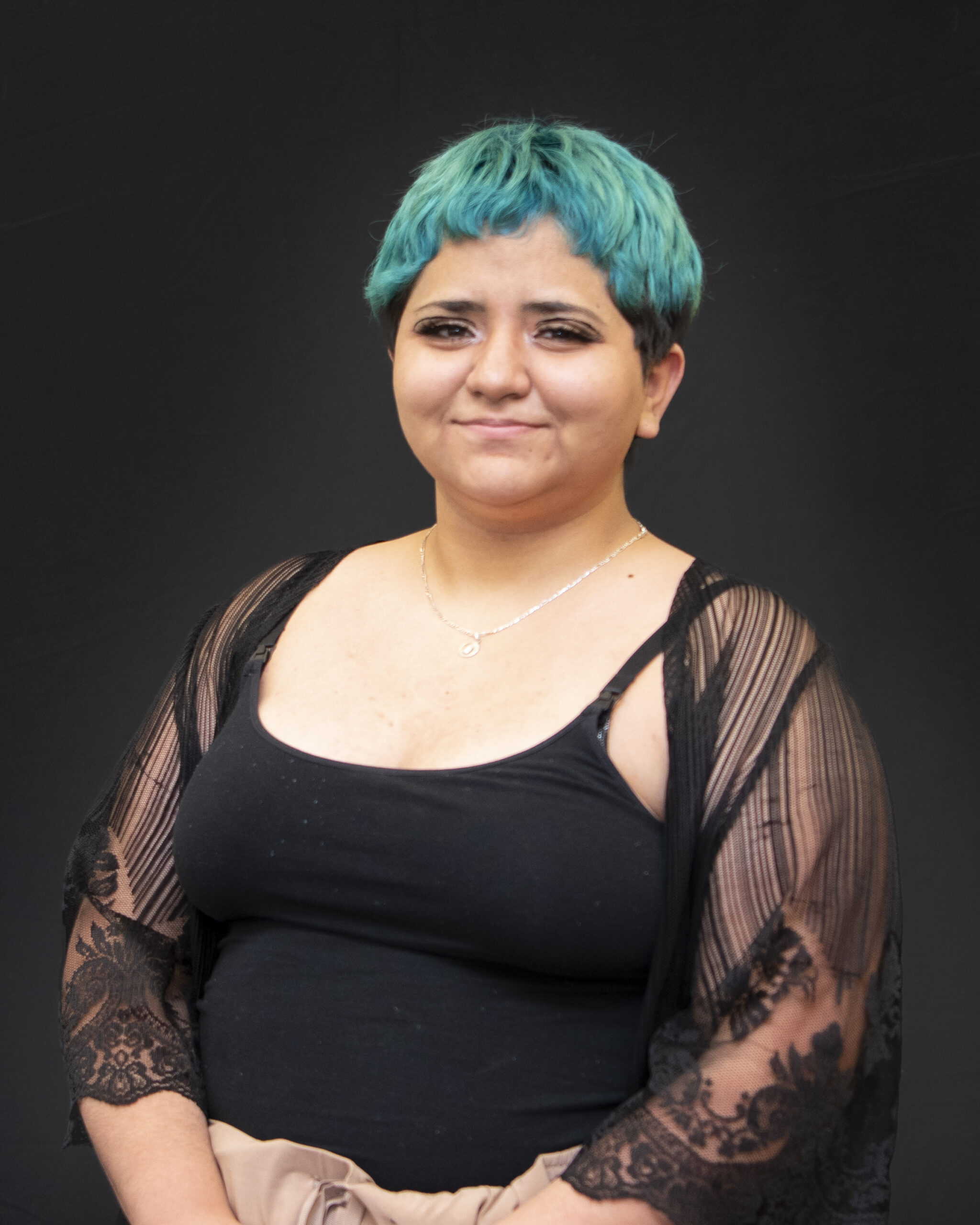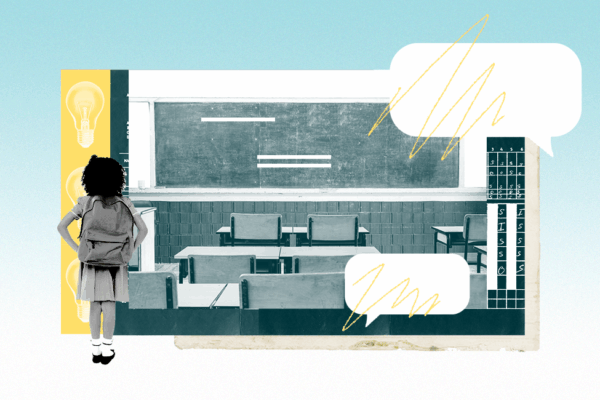Cristina

Cristina was born in Burley, Idaho. When she was just seven years old, her father was deported, and her family had to move to Mexico. To be with her family, Cristina did not return to the United States for ten years. When she was a teenager, she moved without her parents and completed the last two years of high school in Twin Falls.
As Cristina shared, she faced many obstacles in her upbringing in Idaho. Cristina told us that she and her brother faced discrimination when police and school administrators disciplined them differently from their white peers, simply because they were Latino. She also shared that several counselors dissuaded her from preparing for college, saying she didn't know English very well and it would be a bad investment.
However, Cristina did not have family support in Idaho, so she took refuge in her studies, graduated in 2022, and received admission to ten university programs. Seeing the many injustices her family and fellow immigrants and refugees went through inspired her to want to pursue a law degree. Currently, Cristina is studying at Idaho State University to be a teacher for students whose second language is English.
*This interview has been edited for clarity.
Did you have any experiences of racism as a Latina at your school in Twin Falls?
Yes, when I was a senior in high school, I took a history class where a lot of the students were [white]. I have a lot of [white] friends, so I don't have any bad experiences with them. But in this particular class, it was me and another Latino friend, and we were the only Latinos there.
One day a [white] student was apparently going through his backpack and couldn't find his cell phone. Then the student went to the teacher and said, "I can't find my cell phone." And my school had a policy that no one could leave [the classroom] so there was a better chance of finding the things that were missing. Then the teacher called the school policeman and asked the boy, who do you think took it from you? And the boy said, "I think he was one of those two Mexicans." But me and my friend had been together the whole time. The policeman asked us to open the bag and we both flipped them over, but there was nothing. Then the boy when he saw that, he went back to his backpack, sculpted his things better, and found his cell phone.
Neither the teacher nor the policeman apologized to us for this experience. I felt a mixture of helplessness and anger and I really wanted to cry. And at the same time, I realized that was my reality at that moment: as a Latino, I am seen as a potential criminal.
Cristina shared with us that her classmate and friend who was also Latino suffered a lot of lack of support. He lived in the same situation as Cristina, without his parents in the United States and without family or school support. He died of suicide recently.
Have you had any other obstacles in your education in Idaho?
Now what I have to struggle with a lot is that I continue in my English learning. When I tell people, even other Latinos, for example, in the CAMP program, that I didn't understand 100 percent English, they treat me as if I didn't understand anything, as if I was stupid. And it is a serious mistake because you can learn every day.
My ESL [English as a Second Language] class has been one of the best classes I've ever been to in my life. They quickly made me feel welcome. We had students from many countries and the teacher was a very good person and helped me with everything possible. The teacher treated me and my brother as if he were our father. He paid for my graduation photos, picked me up at work, and helped me more than he had to.
For my mom, school wasn't an option, it was a step to follow. And thanks to that I do not see it as an obligation, but as the next step. And my teachers always knew that I wanted to continue my education. In fact, in my last year of high school I could not decide where to go because I was accepted into ten schools for college and several teachers supported me to move forward. But the ones who never supported me were a teacher who was my advisor and another school counselor. They told me that I was not going to do it, asked me why I even applied to university, that it was not a good investment because I did not understand English. I still suffer the repercussions of that because my counselor wouldn't let me take dual credit math and told me he wasn't going to help me. That, if I wanted to sign up for classes, I had to go directly to the university.
Another classmate was offered a scholarship to the College of Southern Idaho, but my school told him not to accept it because they wouldn't let him graduate because he didn't know English. And he had to graduate a couple of years later.
Have you ever been treated differently for being Latina in how you were disciplined in school?
Not me, because I usually try to keep a low profile. But my brother was treated differently, and in fact it was because he is Latino. A [white] boy hit my brother and my brother defended himself. I know [he defended himself] because I was there. And many students told the principal and a teacher that my brother hadn't started the fight. However, my brother was suspended for a week, and the other [white] student was only suspended for one day.
My brother went to Mexico much younger. And sometimes the vocabulary, especially from Sinaloa, is not very good. And the other students listened to my brother, but they didn't know exactly what he was saying. I was not allowed to intervene to defend him, but the principal told me that my brother was a very rude Latino and that he must have incited the other student to fight.
I feel that there is a prejudice in saying that Latinos are quarrelsome, delinquent, or rude. And I feel like schools shouldn't have this inclination to think like that. As Latinos we have been growing in a very strong community and we take care that there is more representation. Even in college I see that we participate in many things.
Is there anything you would have wanted to change at your school in Twin Falls?
I think I would like to see more support in English as a second language classes. My teacher helped me a lot, but he was not in charge of the department. The department leader was pretty strict, and when I took the SAT [college entrance exam] he said, "You can't take it, you're not going to understand." But I had already taken it. Instead of telling me you can't take it, they should have supported me by giving me the instructions in the language I needed.
They have to put institutional racism aside. If a Latino says they don't know English very well, they don't have to take a bad perspective. Usually if a Latino says that, they change their temper and start explaining things as if you don't understand anything. The problem at my school was the same second language program. Many children were quite intelligent, especially in math, but they forced us to start from scratch.
The Education Equity for Latinx Students project started in the fall of 2022 as part of our efforts to expand racial justice work on behalf of Idaho students, beginning with Latinx communities.
READ MORE STORIES AND LEARN ABOUT THE EDUCATION EQUITY FOR LATINX PROJECT


